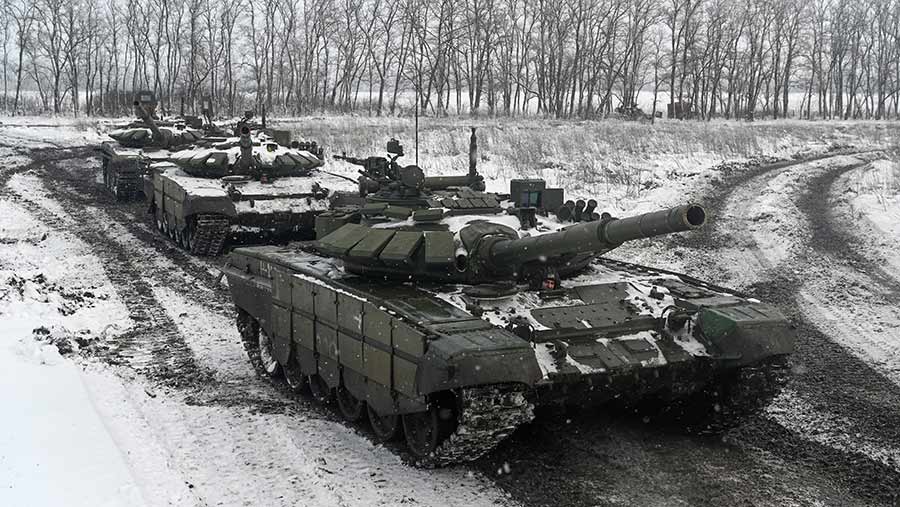Ukraine war could trigger double-digit fall in UK food output
 © Sergey Pivarov/Reuters Stock Adobe
© Sergey Pivarov/Reuters Stock Adobe Farm leaders are warning of a “double-digit drop” in food production by 2023, unless urgent action is taken by government to address the fallout from the Ukraine crisis.
In a new assessment shared with government, the NFU says disruption to UK food output, supply chains, food availability and affordability “could last for years” as a consequence of Russia’s invasion.
See also: Fertiliser price sky-high as Ukraine war worsens energy fears
“Like everyone, we are watching in absolute horror at what is happening to the country of Ukraine and its people,” said NFU president Minette Batters.
“The Russian invasion has been devastating to the people who live there, and we have offered assistance to Ukrainian farmers in any way possible.
“However, the war has also focused attention on the importance and fragility of food security, both at home and abroad, and there are some clear short- and long-term actions government can take to maintain confidence and stability across the UK’s food-producing businesses.”
Crisis
In particular, the NFU points to the effect of the crisis on energy, fertiliser, grain and labour costs, that is adding “dramatic inflationary pressure and market volatility”.
Price uncertainty and access to inputs are constraining farmers’ ability to offer a supply response, while post-Brexit policy, in terms of phasing out direct payments in England, striking free-trade deals with competitors and tightening immigration, is having a profound effect.
To address the situation, the NFU says government must:
- Pause the phase-out of direct payments for two years
- Conduct a full impact assessment of Defra’s planned policy changes
- Review existing regulations that hold back farmers, especially rules that prevent the spreading of organic manures
- Fast-track investment spending under the Agricultural Transition Plan
- Encourage flexible lending by banks
- Review the current immigration system.
“Government must act now, with a clear signal that food security is a priority for the nation,” says the union.
Policy change
With red diesel prices topping 150p/litre this week, ammonium nitrate fertiliser at up to £1,000/t and May wheat futures hovering around £300/t, other farm groups have issued similar calls for a policy rethink.
The Ulster Farmers Union (UFU) wants to see an “agricultural task force” set up to address the effect of the crisis on supplies.
“Input costs for farmers have risen to such unprecedented levels that the main worry now for consumers is not price, but availability,” said UFU president Victor Chestnutt.
He urged the NI government to put contingency plans in place, with direct action to support farmers.
Tenant Farmers’ Association (TFA) chairman Mark Coulman added his concerns. “There has never been a time, since the Second World War, when a food strategy was more needed than now,” he told the TFA’s annual meeting on Wednesday 9 March.
Livestock farmers remain especially exposed to the market turmoil. “Rising feed costs, alongside price rises in fertiliser, fuel and energy, are certain to have consequences for many businesses,” said John Richards, industry development manager at Hybu Cig Cymru (Meat Promotions Wales).
“These problems illustrate the central importance of planning for food security and resilience to international shocks when forming future food and trade policy,” he said.
Food supply
Invited to comment on the situation, Defra explained that the UK’s food import dependency from eastern Europe is low, so there should be no direct effect on UK food supply.
But it acknowledged the global price effect of the war in Ukraine and indicated it was in regular contact with the supply chain to understand the effects, while noting that supermarket shelves had high levels of product availability.
